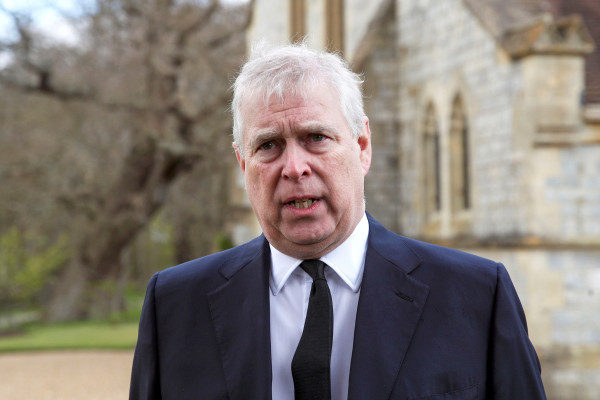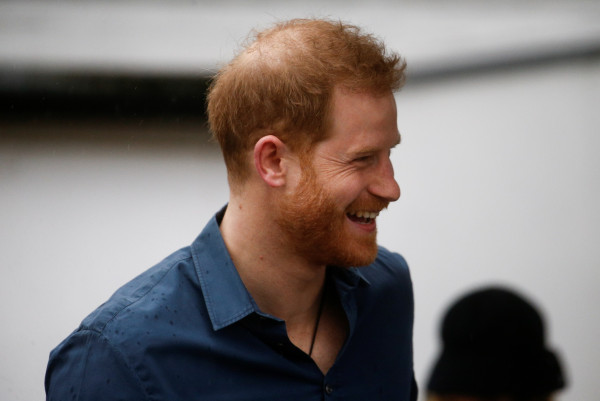Royal Ranks Revised: Prince Andrew and Prince Harry Absent from King Charles' Inaugural Family Portrait
In an unmistakable signal of shifting royal sands, King Charles' first official family portrait since his ascension to the throne has drawn attention for who is missing, rather than who is present. Prince Andrew and Prince Harry, two figures at the center of recent royal controversy, are notably absent from the illustrious line-up.
The monarch and his wife, Camilla, were coronated in a lavish ceremony on May 6. Following the occasion, a collection of official portraits, masterfully captured by renowned photographer Hugo Burnand, was released. The images featured an ensemble of senior royal figures, including Prince William and Princess Kate, Princess Anne and Vice Admiral Sir Tim Laurence, the Duke and Duchess of Gloucester, Prince Edward and Sophie, Duchess of Edinburgh, and Princess Alexandra. Yet, despite their high-profile status, Prince Andrew and Prince Harry were conspicuously missing.
Prince Andrew, 63, has previously raised eyebrows due to his links with the late Jeffrey Epstein, whose reputation was marred by sexual abuse scandals. This association caused a significant uproar within the royal ranks, leading to Queen Elizabeth removing Andrew from royal duties during her reign.
On the other hand, Prince Harry, 38, has stirred controversy through his decision to renounce his royal responsibilities, relocating to America with his wife, Meghan. The couple has since attracted a great deal of attention, often criticising the royal family publicly. Despite attending his father's coronation, Harry was absent from the family portrait, seemingly underscoring his current outsider status.
"This is Charles' final slap at his brother and younger son for the disgrace they've caused," says a royal insider. The absence of Prince Andrew and Prince Harry from the regal portrait seems to imply King Charles' intention to distance the monarchy from the recent controversies.
This symbolic move indicates that under King Charles, the royal family is stepping into a new era, one perhaps defined by stricter adherence to duty and a more carefully curated public image.
King's Coronation: A Ceremony of Absence for Princes Harry and Andrew
The ascension of King Charles III was marked with grandeur, but equally notable were the absences from the regal proceedings. A Buckingham Palace announcement confirmed that Prince Harry and Prince Andrew, both known for their turbulent relationships with the royal family, were not granted official roles in the coronation ceremony, as reported by Britain's Press Association news agency.
As part of their diminished standing, neither prince was part of the ceremonial procession from Westminster Abbey to Buckingham Palace, following the new king and queen's coronation.
The elder of the two, Prince Andrew, stepped back from his royal obligations in 2019, amidst controversy surrounding his relationship with convicted sex offenders Jeffrey Epstein and Ghislane Maxwell. Despite retaining his royal title of Duke of York, Andrew was stripped of his honorary military positions by Queen Elizabeth II and lost affiliations with many organizations he represented.
On the other hand, Prince Harry voluntarily relinquished his duties as a senior royal alongside his wife, Meghan, the Duchess of Sussex, in 2020. They subsequently relocated to California, expressing discontent with their treatment by the royal family. "I wasn't being thrown to the wolves, I was being fed to the wolves," Meghan noted in a Netflix special produced with Harry.
Despite attending the coronation without Meghan and their children Archie and Lilibet, Harry's presence at the event marked his first public encounter with his royal relatives since his memoir, "Spare," was published. The candid account details his experiences as a royal and the "full-scale rupture" within his family.
In an interview with Anderson Cooper on "60 Minutes," Harry discussed the prospect of healing the family divide. He optimistically responded, "Yes," but stressed that responsibility for initiating a "constructive conversation" lay with the royal family. He also emphasized his preference for a private dialogue, free from leaks.
After the coronation, it is widely believed that Prince Harry will quickly return to the United States. In contrast, Meghan and their children refrained from attending the event, choosing to stay stateside.
The palace's decision not to involve Princes Harry and Andrew in the official coronation proceedings clearly reflects their current standing within the royal family – a stark reminder of the personal dramas overshadowing the institution in recent years.
















